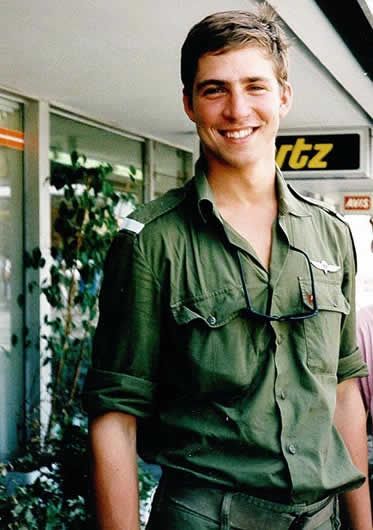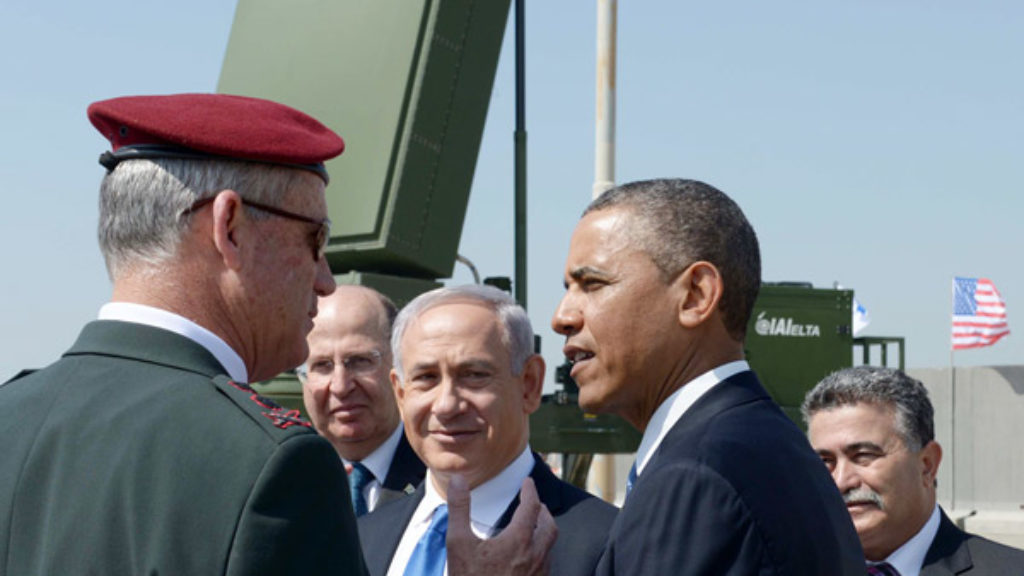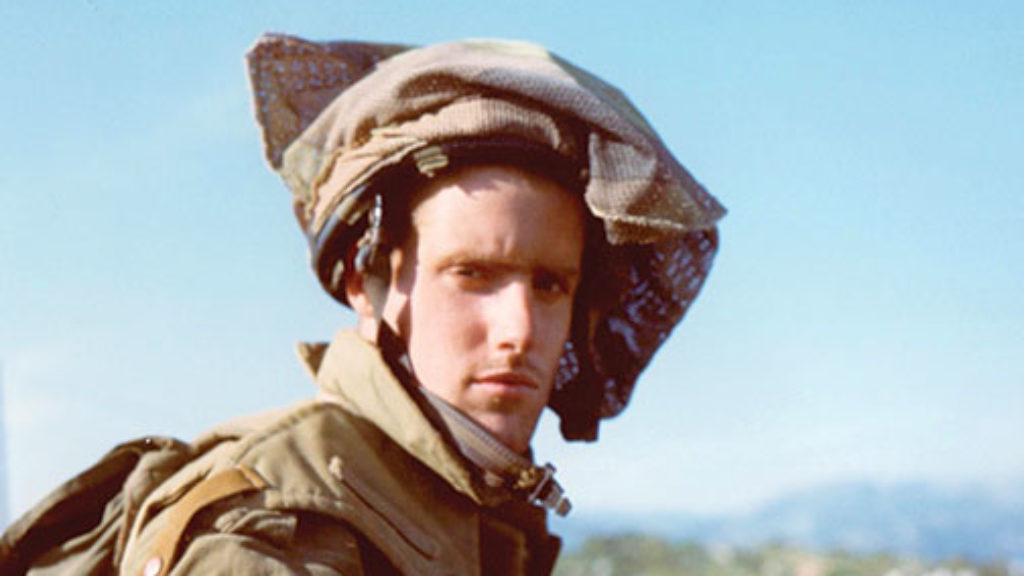A Lone Soldier
While Jews around the world all live in the shadow of the Holocaust and may commemorate Yom HaShoah in similar ways, it’s not the same with Yom HaZikaron. For Israelis, it is above all a day that rekindles memories of specific individuals who died in Israel’s wars and always evokes a sense of personal loss. For those American Jews who mark it, the day is more likely to bring with it a sense of collective loss. This is only natural, but it is not true without exception. Some of those who lost their lives were very much ours—they were raised among us. And of them, there are a few who have made lasting marks, like Alex Singer, who served as a paratrooper between 1985 and 1987 and died, on his twenty-fifth birthday, fighting terrorists in Southern Lebanon.
Born in White Plains, New York, in 1962, Alex first encountered Israel as a youngster, when he spent four years there with his family, including a year at a kibbutz high school. He subsequently finished high school in the DC area and earned his BA at Cornell (where, as a visiting professor, I had him in a class on the history of Zionism) before making aliyah. Alex: Building a Life, a book consisting mostly of excerpts from his letters and journal entries, gives us glimpses of his young adult life before making aliya: a junior year at the London School of Economics, a trip to Russia in 1983 to aid refuseniks, and other travels in Europe, before he settled and, after studying Arabic for a time at the Hebrew University, proceeded to join the army.
It is tempting to compare Alex’s move with that of other young Americans of his generation, like Michael Oren, Jeffrey Goldberg, and Tal Keinan, who did roughly the same thing when they were quite young and wrote books about it decades later. But Alex: Building a Life is not the retrospective self-accounting of a seasoned diplomat, journalist, or entrepreneur. It is a contemporaneous record of the thoughts, sketches, and above all the brave deeds of a highly talented young man who was just coming into his own when he died.
Alex’s love for Israel is present on every page of this book. You see it in the joy he feels when he stumbles across Israeli tourists in England or in Spain. A visit to Israel in the spring of 1983 reminds him how very tired he is of being outside of it and leads him to conclude that he can’t put off aliyah forever. And even before he makes the leap, he tries to talk his parents into doing it too. His love of Israel likewise shines through in his account of his audacious solo trip around Jordan (on his American passport), just before his enlistment. His makeshift itinerary includes a visit to an unexcavated Roman theatre near the small town of Um Qeis, where he arrived at sunset:
The view was even more breathtaking than in Ajlun and I could see the whole Sea of Galilee and the Golan Heights. I put my sleeping bag on one of the wide seats of the theater and watched the lights flicker on in Tiberias and the southern Galilee kibbutzim. A good way to spend the last evening of my twenty-first year.
Back in London, musing about his future path in “the best Armed Forces for the best country in the world,” Alex had hoped that he might go into “an interesting unit.” When he finally volunteered as a twenty-two-year-old “lone soldier,” he “joined the paratroops,” the editors of Alex: Building a Life tell us, “because he wanted to be with volunteers in the most ‘active’ service and because his brother Daniel was in the paratroops.”

The largest part of the book consists of the letters Alex wrote home during his two and a half years in the IDF and entries in his journal—from the day of his induction, through basic training, the elation of his first jumps, service in the ranks, and officer training school, to his all-too-brief career as an infantry officer. Vivid accounts of the grueling routine, the motley company he was forced to keep, and the moral challenges of military life alternate with stories of his experiences in synagogues on weekend leaves and earnest ruminations about the meaning of what he was doing. Through it all, Alex remained an idealist, but one without illusions. He has a lot to say about the flaws of the men around him and in the institutions that shape their lives, but he remains firmly convinced of the possibility of improving them and, even more, of his responsibility to make that happen.
Of one thing he was sure: he had done the right thing. As he wrote to his grandparents in 1986, just before he finished officers’ school:
I have no regrets about any of my three big and hard decisions. I feel glad that I decided to stay the extra year so as to be an officer. I feel no question that joining the army has been a good experience for me—that it has given me the opportunity to play a part in making the one Jewish state in this world, a place where Jews can live without fear as Jews. Finally, I feel that the decision to move here at all was a decision to move to my home. Without preaching ideology, or rationalizing, or too many explanations, I can simply say that this new home of mine is my home—that I feel here like an insider not a visitor.
When he finished officers’ training, Alex got a job behind the lines—training the defenders of air force bases. He relished the perks on those bases, especially the outstanding food, but yearned to do “real work directly involved with defense rather than the difficult and almost purposeless labor” he had been doing. At a shiva in Jerusalem for a friend who had died in an accident, he met a battalion commander in the Givati Brigade who arranged for him to become a platoon commander in the infantry.
It was in this capacity that he arrived in the Golan Heights in June. Only a few months later, in September, he died in a firefight with terrorists just across the border in Southern Lebanon.
I have been teaching for a long time at a university less than fifty miles from the one where I taught Alex all those years ago. Over the past quarter of a century, I have had more than a few students who have told me that they planned to enlist in the Israeli Army after graduation. Whenever I hear that, I reach for my copy of Alex: Building a Life, and loan it out. That’s not because I want to inspire anyone to follow in his footsteps or to remind anyone of the risks of doing so—although I am tempted to try to do both. I just want these students who feel the way Alex did to know the story of a noble young man who once lived nearby—and to remember it. Today is a good day for the rest of us to remember it too.
Comments
You must log in to comment Log In
Suggested Reading
Scaling the Internet
September 11, 2001 proved Akamai's technology could withstand anything. Cruelly, inventor Danny Lewin was the first to die in the attacks.

Members of the Tribe
If an Israeli ambassador to the United States can’t consume ham in public, he may still have to engage in something like pork-barrel politics.

A Cedar of Lebanon
In addition to the weight survivors feel, Friedman bears the burden of giving voice to the place that shaped young men’s lives and took others, while leaving no official trace.
The Last Bedtime Story: Roz Chast’s Sort-of Tour Guide
Realizing that her daughter knows nothing of the urban wilderness her mother once inhabited, Roz Chast takes it upon herself to bequeath her accumulated wisdom in the method most natural to her, a comic book.
Robert S. April MD
Alex Singer z l'b is an unsung hero of Jewish history. Thanks for sharing his story with our readership on Yom Ha-Zicharon. He was one of the many thousands (or millions) who died kiddush Hashem on the road to the rebirth of the Jewish State over two plus millenia.
Daniel Gordis has suggested that modern Zionist dialogue center around the question "Is Israel a success?". Did it accomplish its original objectives in response to Herzl's cry of despair that Jews could no longer live safely in Europe and needed their own sovereign state.?
Because of heroes like Alex Singer, it has been an overwhelming success. May we pray for the day, now that we have a country in which we do not have to fear the neighbors down the block, that we may no longer have to fear our neighbors across the frontier line. Let us remember today that Alex Singer z l'b and others like him were the reason why. May his Neshumah have an aliyah.
Omayn.
Robert S. April MD
New York City
"
Rabbi Laurence Edwards
Thank you for this remembrance of Alex. I was the Hillel Director at Cornell during most of Alex's time there. He and several other members of the Class of 1984 made aliyah after graduation; others went on to important roles in Jewish communal life in the US. They were an extraordinary group. Alex was a person bursting with charisma and enthusiasm for all that life had to offer. I have had the opportunity on a couple of occasions to visit his grave on Mt. Herzl, to share some of his poetry with younger students, and to stand in solemn respect for his life and his sacrifice. I think of him especially on Yom Hazikaron.